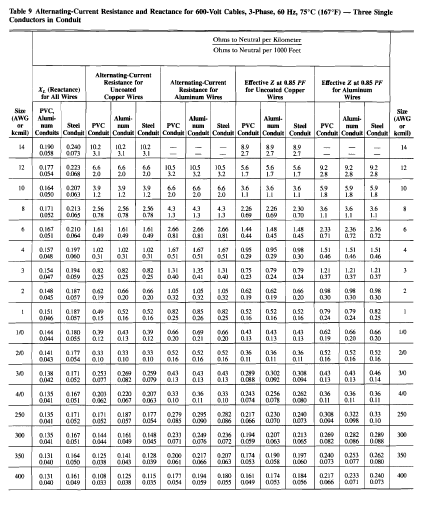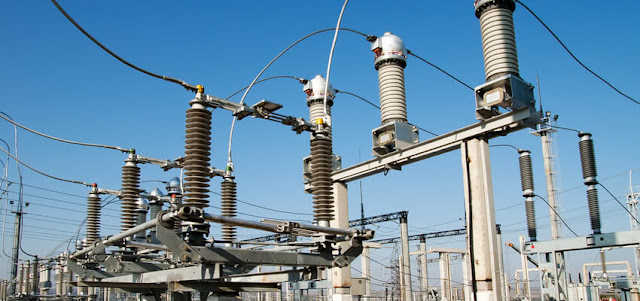Voltage Drop in Consumer Installations According to BS 7671
Voltage drop in a consumer’s installation can be a contentious issue. However, it is an important aspect of installation design since if it is too high some certain equipment will not function correctly or will not function at all.
Rules Applied:
- 525.1 In the absence of any other consideration, under normal service conditions the voltage at the terminals of any fixed current-using equipment shall be greater than the lower limit corresponding in the product standard relevant to the equipment.
- 525.100 Where fixed current-using equipment is not the subject of a product standard the voltage at the terminals shall be such as not to impair the safe functioning of that equipment.
- 525.101 The above requirements are deemed to be satisfied if the voltage drop between the origin of the installation (usually the supply terminals) and a socket-outlet or the terminals of fixed current-using equipment, does not exceed that stated in Appendix 4 Section 6.4
Calculating Voltage Drop
When calculating voltage drop due consideration
should be given to the following:
- motor starting currents; in-rush currents
- control voltages (particularly those associated with computerized systems).
Notes:
- Motor control contactors and relays can ‘drop out’ if the coil voltages fall towards 80% of the operating voltage.
- The effects of harmonic currents may also need to be considered and included in the calculation.
- Voltage transients and voltage variations due to an abnormal operation can be ignored.
The maximum voltage drop values can be taken from the table shown below:
For 230 Volts Network
 |
| Allowable Voltage Drop Based on BS 7671 |
*The voltage drop within each final circuit on Private Networks, should not exceed the values given in (i) above for Public Networks
For 400 Volts Network
 |
| Allowable Voltage Drop Based on BS 7671 |
*The voltage drop within each final circuit on Private
Networks, should not exceed the values given in (i) above
for Public Networks
When calculating the voltage drop in a circuit,
the design current can be taken as being either
the equipment rated current or, where there
are a number of loads, the total connected
load multiplied by a diversity factor.
Note: If the total circuit length
exceeds 100 meters, the limits given in Table
4Ab may be increased by 0.005% per meter
up to a maximum of 0.5%.
The voltage drop can be apportioned throughout the
system circuits as the designer wishes, but the final
circuit voltage drop is limited to the values given for
Public Networks, regardless of whether it is a Public
Network or a Private Network.
In case that the supply voltage at the origin is lower than
the nominal 230/400V, the designer needs to
consider the effect of the minimum permissible
supply voltage. This is a maximum of 6% below the
nominal supply voltage, which equates to 216.2V (for 230 V network ) and 376V (for 400 V network) respectively.
Reference:
Electrical Contractors Association Fact Sheet | Download


.webp)











You've written an excellent post, and you've shared it with us. Your article provided me with some unique and useful knowledge Experienced Domestic Electrician in Sittingbourne. I appreciate you sharing this text with us.
ReplyDeleteWhen your website or blog goes live for the first time, it is exciting. That is until you realize no one but you and your. 2cl2fm
ReplyDeleteReally, this is impressive article which you have shared here. It is provides me an interesting knowledge. I request you to keep sharing such blogs for testing and tagging perth. Keep it up.
ReplyDeleteYou have shared a lot of information in this article about Electrical Maintenance Services In Melbourne. I would like to express my gratitude to everyone who contributed to this useful article. Keep posting.
ReplyDeleteI admire this article for the well-researched content and excellent wording. Electrician Springfield Mo. I got so involved in this material that I couldn’t stop reading. I am impressed with your work and skill. Thank you so much.
ReplyDeleteExcellent post. I really enjoy reading and also appreciate your work. Electronic Counting Scale This concept is a good way to enhance knowledge. Keep sharing this kind of articles, Thank you.
ReplyDelete"The webinars and online courses on your website are a great way to learn."
ReplyDelete